If you're a landlord looking to address a rental agreement violation, drafting a clear and respectful notification is essential. Communication is key in these situations, and a well-written letter can help maintain a positive landlord-tenant relationship while conveying the seriousness of the matter. By outlining the specific violation and the terms of the agreement, you ensure that your tenant understands the implications and the next steps required. Ready to learn how to craft the perfect notification letter? Read on for our detailed guide!
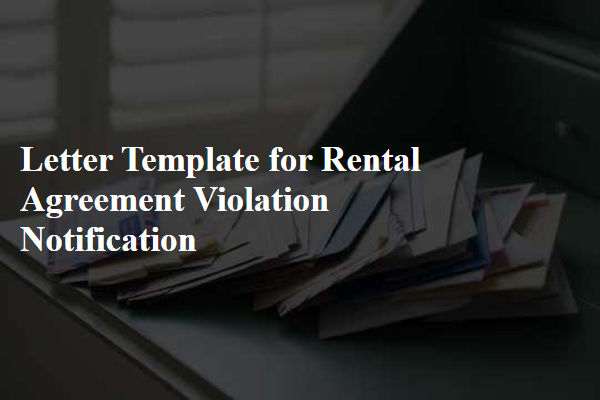
Clear description of the violation
Unauthorized occupants can breach rental agreements, often leading to disputes. For example, a tenant at Pine View Apartments, which has a strict policy against non-registered guests, may allow friends to stay long-term without prior consent. This violation may result in penalties such as fines up to $200 or, in severe cases, eviction proceedings initiated by the property management. Understanding the specifics of occupancy limits outlined in the lease is crucial to maintaining a good tenant-landlord relationship.
Reference to the specific lease clause
A rental agreement violation notification serves to address breaches of the lease contract, outlining specific clauses that have been violated. Common infractions include non-payment of rent, unauthorized pets, or alterations made without permission. Each clause typically includes a description, consequences, and a timeframe for correction. Documenting the violation ensures clear communication and sets expectations for resolution. Legal clarity is crucial, citing the lease section detailed, such as Section 5 on Rent Payment or Section 10 on Alterations. This approach solidifies the landlord's position while providing the tenant an opportunity to rectify the issue.
Expected corrective action
Rental agreements contain specific obligations that tenants must fulfill to maintain a harmonious living environment. For instance, issues like unauthorized pets or excessive noise can breach these terms. In such cases, landlords often issue violation notifications, pinpointing the specific infractions and the required corrective actions. Common expectations include the removal of unauthorized pets within a stipulated timeframe, typically 14 days, or cessation of disruptive noises that disturb neighbors, outlined in the lease agreement. Failure to comply may result in further actions, including potential eviction, highlighting the importance of adhering to established lease terms.
Deadline for compliance
The rental agreement violation notification outlines specific breaches of the lease contract, including unauthorized pet ownership, failure to maintain premises, or late rental payments. A clear deadline for compliance (often 14 days) is established to rectify the identified issues. Failure to address these violations may result in potential eviction proceedings in accordance with local tenant laws and regulations. The notification includes contact information for further discussion and clarification regarding the necessary actions to remain compliant with the rental agreement. Legal precedents from local housing authorities may also be referenced to underscore the importance of adherence to the lease terms.
Consequences of non-compliance
Tenants receiving a notification regarding rental agreement violations may face significant repercussions. Non-compliance with lease terms established in the rental agreement (a legally binding contract typically spanning twelve months) can lead to actions such as eviction notice issuance. This may occur under local housing laws in cities like New York or Los Angeles, where specific regulations govern tenant rights and landlords' obligations. Financial penalties might also apply, including late fees (often ranging from $50 to $150) for unpaid rent or charges related to damages exceeding security deposits. Continued violations might escalate to legal proceedings, further impacting the tenant's rental history and credit score. Awareness of the consequences, coupled with understanding the process outlined in state housing codes, is crucial for tenants to maintain their rental agreements effectively.

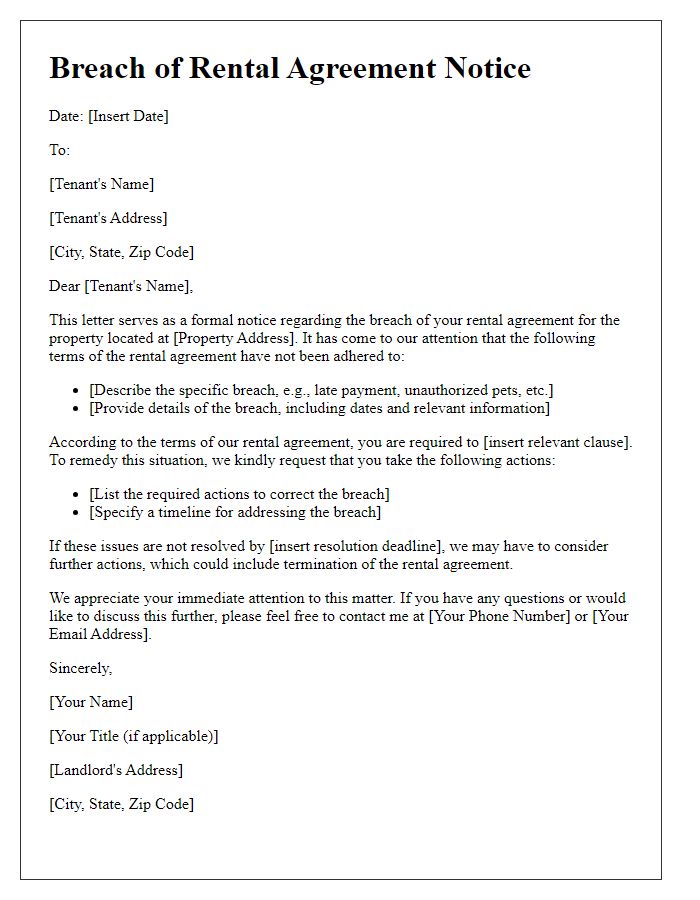
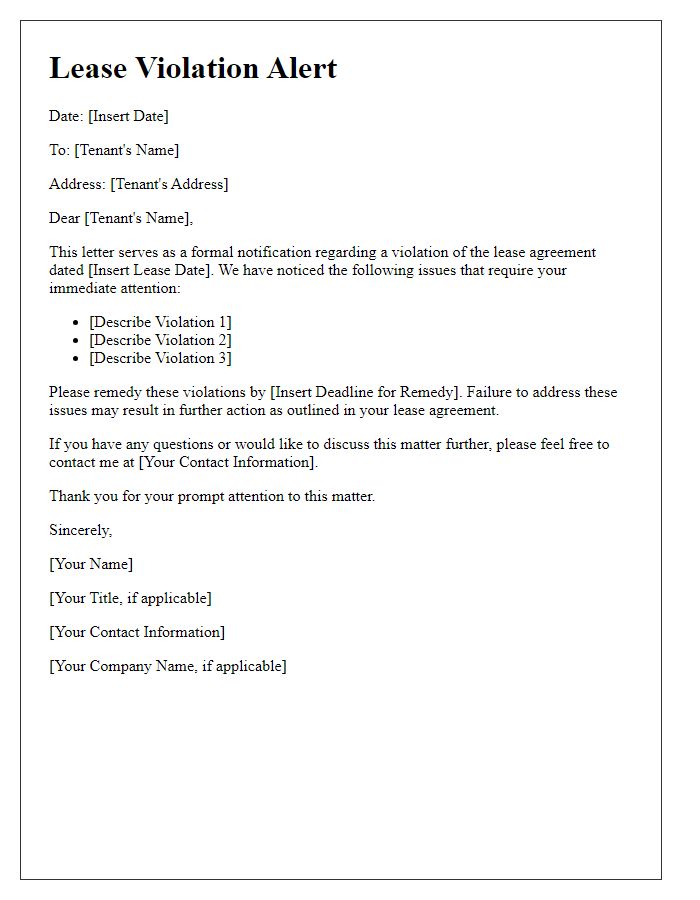
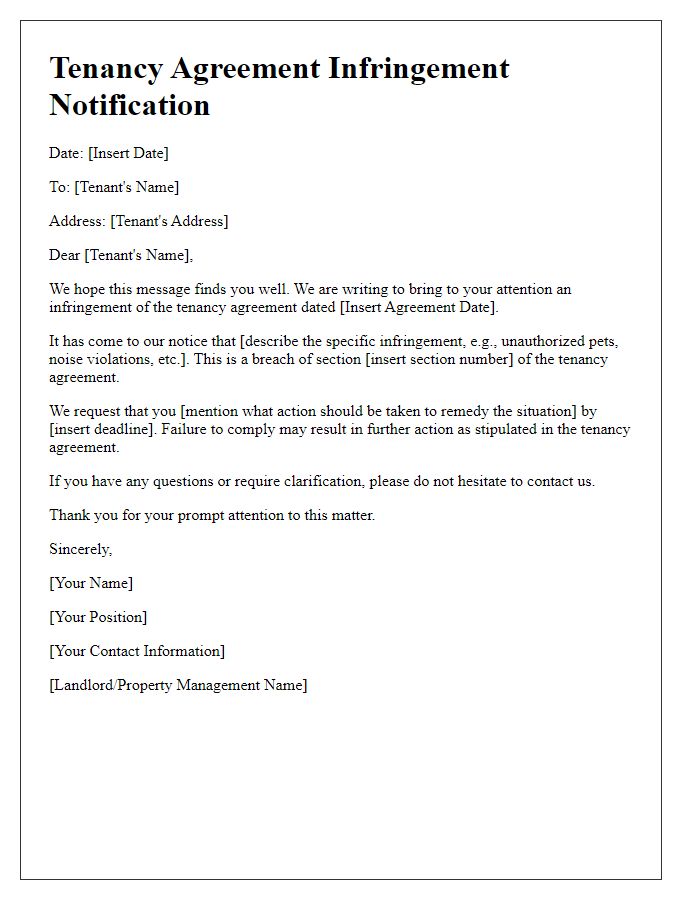
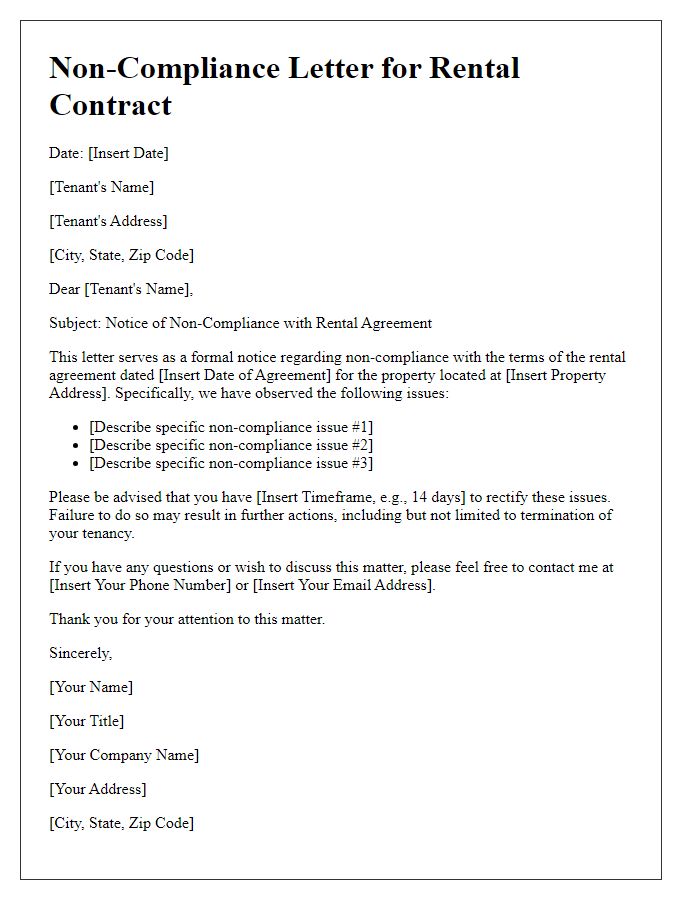
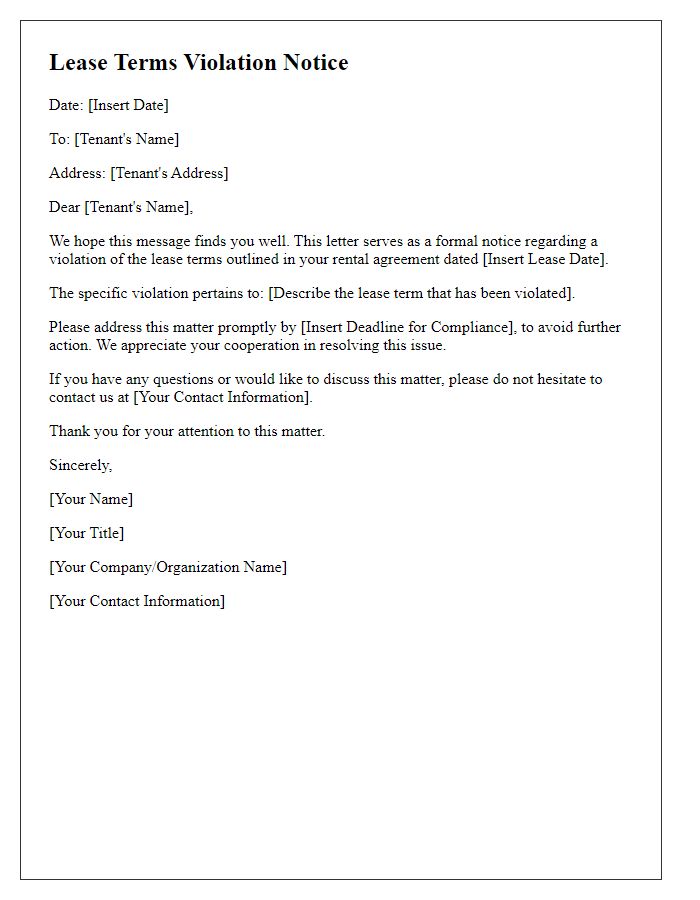
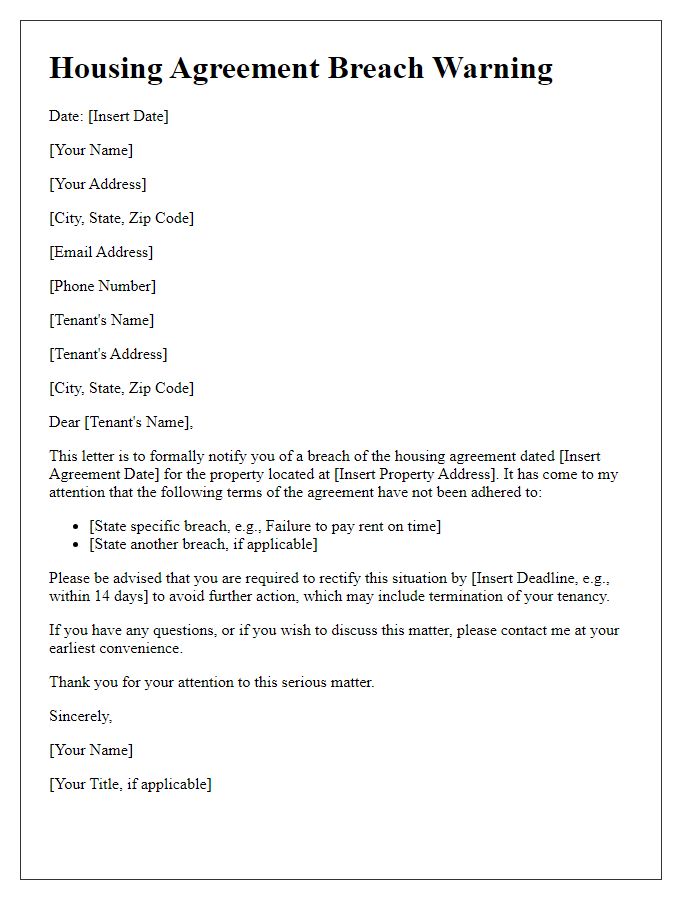
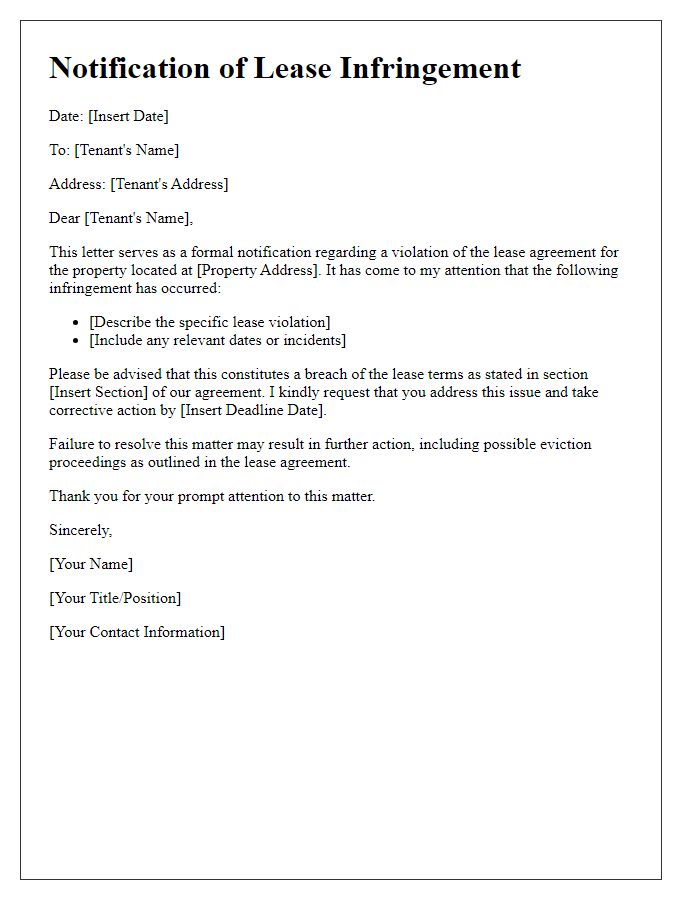
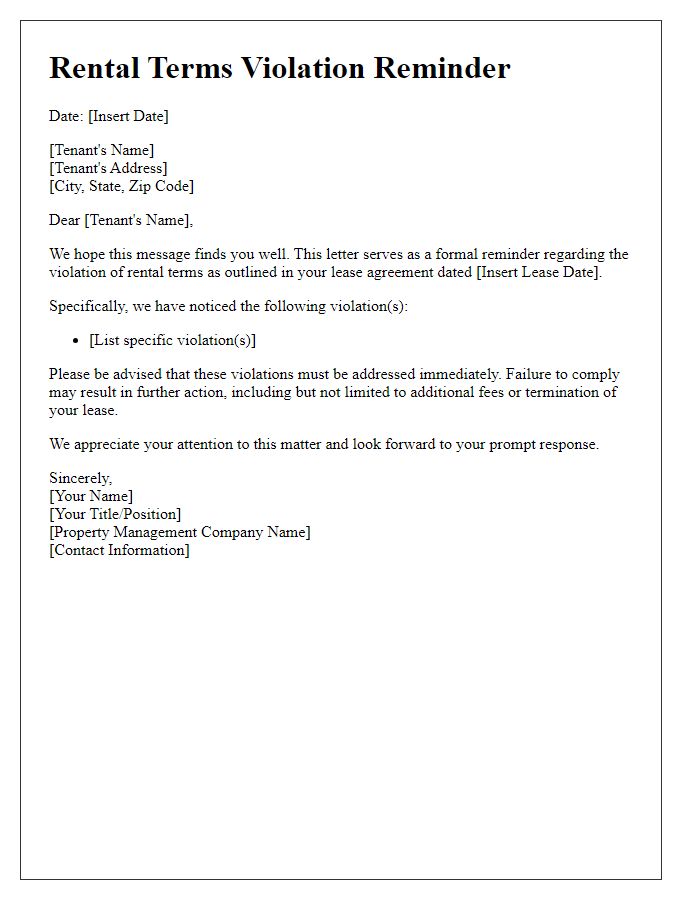
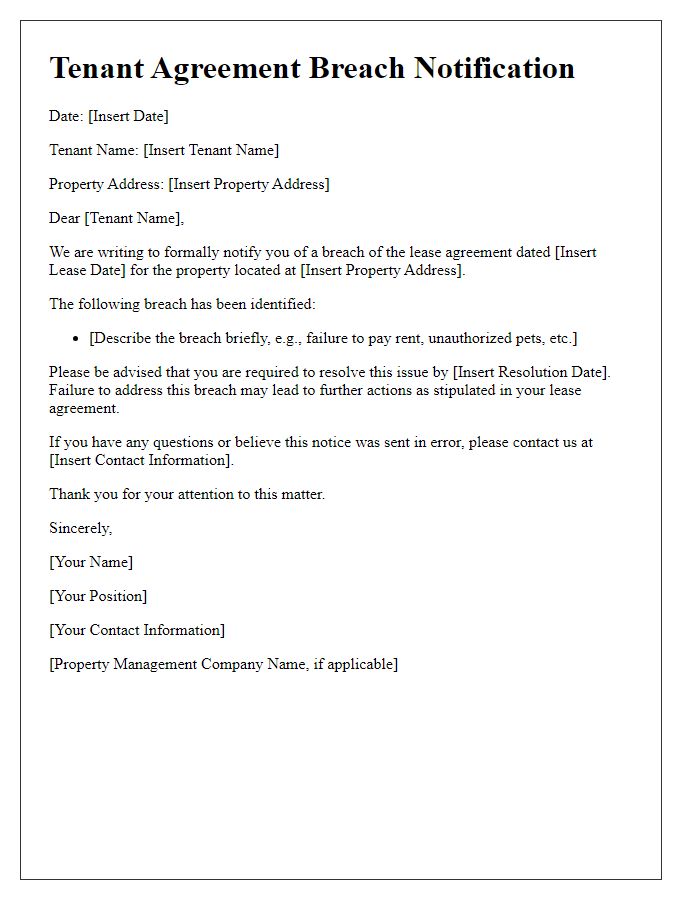
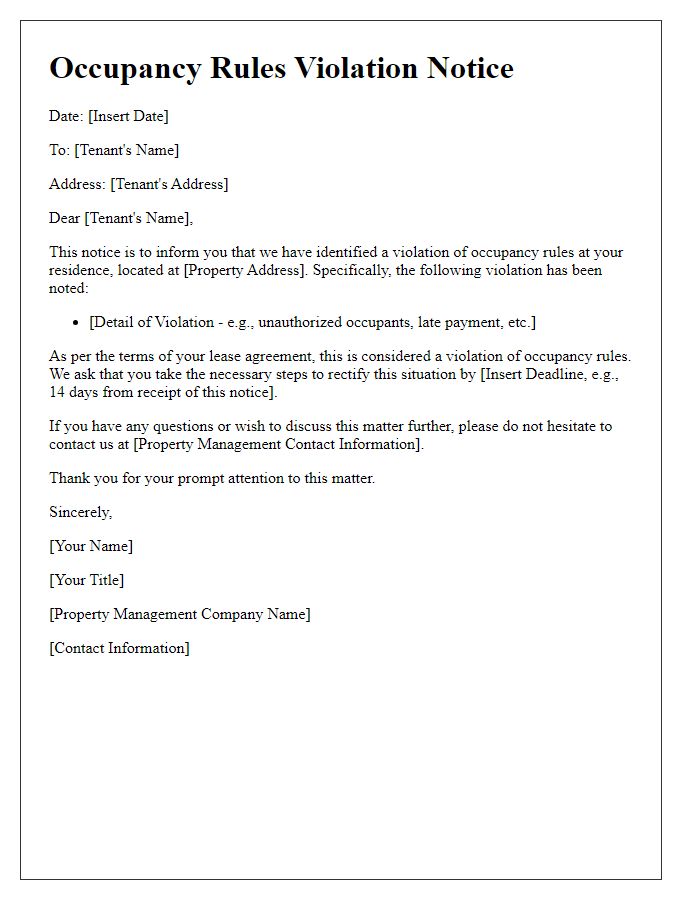

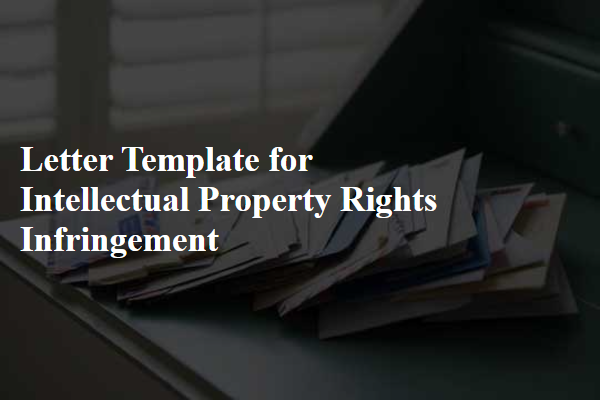
Comments